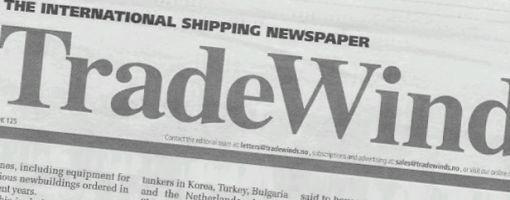
Norwegian diplomats want bulkers to stop loading phosphate in Western Sahara but their jawbones are their only weapon.
25 June 2007
By Bob Rust
Tradewinds
Norway wants bulkers to stop loading phosphate in Western Sahara but the country's diplomats say “moral-political” jawboning is all they can do about it.
Bergen shipowner Kristian Gerhard Jebsens Skipsrederi (KGJS) is running into domestic criticism for its part in the commodities export trade of the Moroccan-controlled territory.
Norway's foreign ministry says it would like to help more but can only offer advice.
Political opponents of the trade are spotlighting tomorrow's scheduled unloading of Gearbulk's 52,000-dwt open-hatch bulker Bulk Saturn (built 2003) at Bluff, New Zealand, after calls at Whangarei and Tauranga carrying a load of phosphates from Western Sahara. London-based Gearbulk is 60% owned by the Norwegian company.
Norwegian idealistic organisation Framtiden i vare hender ("The future in our hands") has been tracking the ship.
The disputed trade and the opposition to it have roots that go back to the period of European colonialism.
The United Nations has considered the area a non-self governing territory for more than 40 years, since before the time Spain handed it over to Morocco and Mauritania.
Starting in 1975 the two Northwest African countries were allied in a bloody war against the rebel Polisario Front and the native population. Mauritania eventually withdrew its claim in favour of Morocco, which still wields control over the large territory and its natural resources.
Australia is the main importer of Western Saharan phosphates. Supporters of the Polisario Front there have argued for a national ban on the imports but Australian fertiliser and agriculture industries have countered that Western Sahara is the only possible supplier of phosphate of the quality and quantity Oz farmers need.
In Norway, the foreign ministry indicates that its heart is in the right place but its hands are tied.
“We can offer moral-political challenges but we cannot support the challenge with action,” foreign ministry spokesman Jorn Gjelstad told Norwegian press bureau NTB.
He added: “When business activity violates the interests of the local population we believe it violates international law. Our clear line is that we advise against this type of business activity.”
In Australia, the foreign ministry takes no such position and has only warned Australia's phosphate importers to seek legal advice before importing anything from Western Sahara because of "international law considerations".
Last year the Polisario Front and the corresponding Western Saharan government in exile had some success in negotiating licenses that give oil companies exploration rights that they can exercise once the Moroccans are out.
However, only the Moroccans are able to supply non-hypothetical raw materials from Western Sahara for now.
Order our Western Sahara poster!
“Try to Visit Western Sahara”…
The Security Council fails Western Sahara and international law
On 31 October 2025, a new resolution was adopted in the UN Security Council calling on the Saharawis to negotiate a solution that would entail their incorporation into the occupying power, Morocco.
Saharawis Demonstrate Against Trump Proposal
The United States has proposed in a meeting of the UN Security Council on Thursday that the occupied Western Sahara be incorporated into Morocco.
Skretting Turkey misled about sustainability
Dutch-Norwegian fish feed giant admits using conflict fishmeal from occupied Western Sahara. Last month, it removed a fake sustainability claim from its website.



